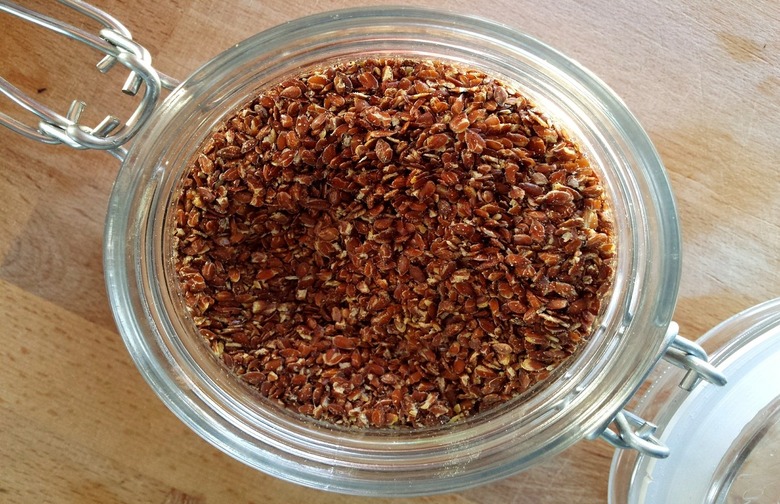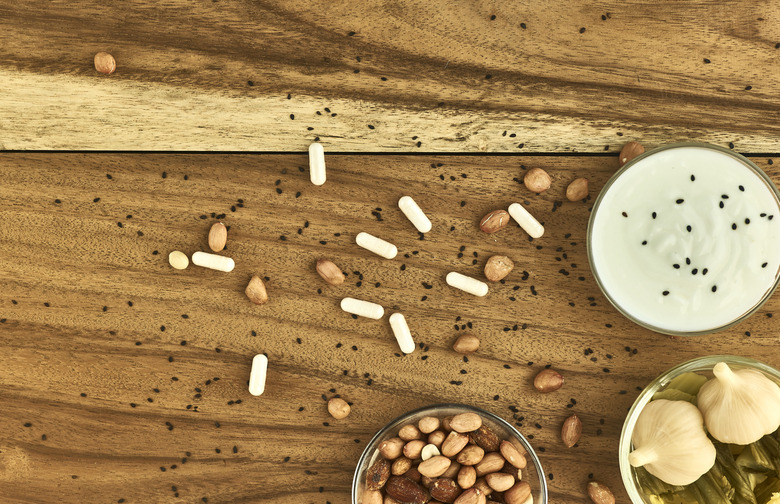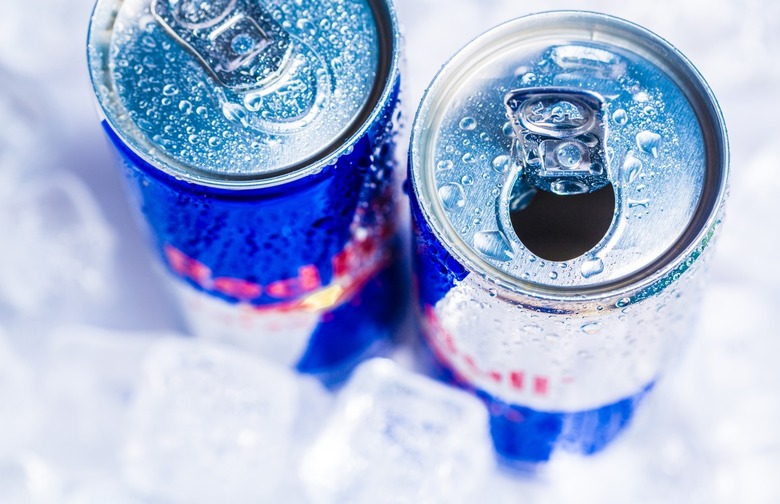The 10 Biggest Health Lessons We Learned In 2016 Slideshow
Too much drinking can result in hangovers, vomiting, or worse, but in moderation, alcohol can be beneficial to your health. A new study out of Australia is building on existing evidence that people who consume between 10 and 20 grams of alcohol per day were less susceptible to developing metabolic syndrome — a group of risk factors that raises risk for heart disease and diabetes. (Note that a standard drink in the United States contains around 14 grams of alcohol.)
Working Out Before Breakfast Can Lead to Weight Loss
Save that bowl of oatmeal, protein shake, or plate of eggs for after your morning workout because a new study shows that delaying breakfast until after an early-morning workout may help you control your eating throughout the day. The study participants ("physically active white men ages 18 to 23") were found to consume around 30 percent more calories on the days that they ate breakfast before a workout. A majority of the extra calories were consumed at night, which means that skipping the pre-workout breakfast might help you avoid nighttime noshing.
Going to Sleep With Bad Thoughts Makes Them Harder to Forget
It's difficult to fall asleep when your mind is racing, but unless you want these bad thoughts permanently imprinted into your memory, do your best to avoid going to bed angry. New evidence shows that sleep doesn't necessarily clear the mind, but can instead solidify upsetting memories that are more vividly recalled the next day.
Physical Activity Alone Cannot Reverse Effects of Prolonged Sitting
A 2013 survey showed that the average American sits at least 13 hours a day, on average. Sitting for extended periods has been linked to cardiovascular disease and weight gain, and in order to combat these negative effects, it's been suggested that older adults engage in at least 150 minutes of physical activity a day. But a new study showed that this may not be enough of a solution. Good overall fitness, defined by factors such as low cholesterol levels and normal blood sugar levels, is more effective at combating the dangers of prolonged sitting.
Consuming Omega-3 Fatty Acids Can Combat Risk of Heart Attack
Heart disease is the leading cause of death in the United States, claiming the lives of more than 610,000 people in 2009, but an increase in omega-3 intake may help prevent cardiovascular-related fatalities. An analysis reviewing the data of 19 related studies from across 16 countries found that "participants who had higher concentrations of seafood and plant-based omega-3s in their blood were around 10 percent less likely to die from heart attack," compared to participants who had lower omega-3 concentrations.
The Proper Diet Can Extend the Lifespan of Middle-Aged Adults
It's never too late to start eating healthy... or is it? Recent findings suggest that the foods you eat as a middle-aged adult can dramatically impact your future health. A study tracked the health of 11,000 middle-aged adults who had completed a three-day food diary at one point between 1987 and 1999. The researchers evaluated the number of participants who had died after an 18-year (average) follow-up period, and found that the diets of those still living shared some commonalities, such as consumption of nuts, fruits, whole grains, and vegetables. The researchers also found that that participants who ate the highest number of solid fats in the form of pastries, butter, and dairy had triple the risk of dying from any cause compared to those who ate the lowest amounts.
Gut Bacteria Reduces Food Cravings
Want to be able to control your food cravings by popping a pill? It might sound too good to be true, but research out of Imperial College London and the University of Glasgow shows that when participants drank milkshakes supplemented with inulin-propionate ester, they had less of a craving for high-calorie foods. The study measured their brain activity using an MRI, and found that after taking inulin-propionate ester that there was a reduction in activity in reward centers of the brain. The results build on existing research that found people who took a daily inulin-propionate ester supplement gained less weight over a six-month period than those who consumed only inulin.
Probiotics Can Help Diabetics Reduce Blood Sugar Levels
Breakout the Greek yogurt and kombucha, because the probiotics (good bacteria) found in fermented foods can help people better manage their blood sugar levels. A small study found that when participants following the DASH diet (Dietary Approaches to Stop Hypertension) supplemented their diets with probiotics that there was a positive reduction in several measures of blood sugar levels. The DASH diet is already hailed as one of the most effective ways to improve heart health without the use of drugs, and the addition of probiotics can help protect against diabetes.
Stress Negatively Impacts Health
An extra-long commute to work, an illness in the family, or even a slow internet connection are major (and minor) distractions that adds stress to people's lives. But while not all stress is bad (think about the flight-or-fight response), constant pressure has negative impact on a person's health. The American Heart Association says stress can raise the risk of a heart attack, and also encourage people to engage in "stress-relieving vices," such as smoking and alcohol consumption. While the impact of stress on the heart has been well-documented, a recent study shows that stress, in the form of post-traumatic stress disorder, can increase chances of developing diabetes because stress increases the production of the hormone cortisol, which manages glucose levels in the blood.
The Combination of Energy Drinks and Alcohol Might Negatively Affect the Brain
Although it's unlikely that you will ever see a mouse sipping on a vodka-Red Bull, a new study shows how the combination of energy drinks and alcohol can impact the a mouse's brain chemistry. Three groups of mice were given a different combination of mixtures of caffeine and alcohol, only caffeine, or only alcohol, along with food and water. At the end of one month, the researchers found that the mice who drank the combination of alcohol and caffeine displayed an increased level of a certain protein, which is an indicator of a change in brain chemistry. Whether this effect applies to humans is still unknown, but the next time out at the bar, air on the side of caution and order a vodka-cranberry instead.









